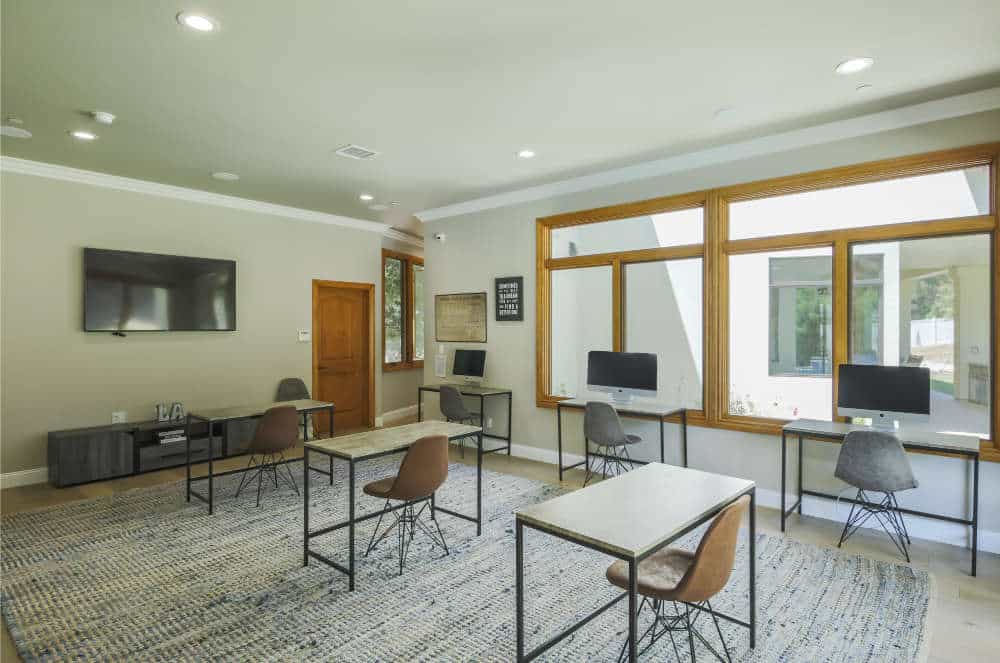At our mental health treatment center for teens, we understand how difficult this time is for the parents and families of a struggling teen. Our therapeutic and clinical team will provide therapeutic support and guidance for the family unit during the entire process.
Acute Stabilization
Acute Stabilization Treatment for Teens & Adolescents (12-17)
Acute Stabilization
When a teen experiences a sudden psychiatric or drug-related crisis that can bring about significant impairment in function, or even be life-threatening, acute stabilization services are required. Acute stabilization involves integrated medical and psychiatric interventions provided in a medical environment on a short-term basis that are adjusted to the level of the specific emergency—mild, moderate, or severe.
mental health & wellness
Acute Stabilization for Drug or Alcohol Emergencies
When the teen has ingested toxic levels of alcohol or drugs such as opiates, immediate medical response is crucial. An opiate overdose causes respiratory failure and is a medical emergency. Naloxone is an opiate overdose antidote that can be administered by first responders at the site of the event, and once breathing has been restored the individual can undergo acute stabilization treatment for a few days at a medical facility.
Alcohol poisoning occurs when the adolescent has ingested a toxic amount of alcohol in a short period of time. This results in an alcohol level that is considered toxic to the body and can be life-threatening. The teen will then receive acute stabilization at a facility for a few days.

Teen Mental Health Programs
Medical Detoxification

Medical Detoxification
Residential Inpatient

Residential Inpatient
Partial Hospitalization

Partial Hospitalization
Intensive Outpatient

Intensive Outpatient
Acute Stabilization for Psychiatric Emergencies
An acute, or brief, psychotic event occurs when the teen becomes delusional, has visual or auditory hallucinations, paranoia, and other perceptual disturbances. During a psychotic episode the teen may become harmful to themselves or others, and should be seen by a mental health professional immediately. Acute stabilization first involves evaluating whether the teen has co-occurring mental health concerns. If the teen is so agitated as to inflict harm, medical personnel will quickly act to calm them down with mild to moderate sedation, usually with benzodiazepines. Once the adolescent in crisis has been mildly sedated, clinical intervention will involve assessing the specific mental health disorder and then prescribing anti-psychotics or other medications, such as neuroleptics, clozapine, or risperidone, which will help prolong the stabilization of the patient.
In mild to moderate psychiatric events, the teen will be assessed for suicidal ideation, homicidal thoughts, and the presence of delusions or hallucinations. Acute stabilization will also require pharmaceutical intervention based on the mental health diagnosis and whether there is co-occurring substance use disorder, as well as clinical psychotherapy.
About BNI Treatment Centers
Behavioral Neuroscience Institute (BNI) Treatment Centers provides acute stabilization services for adolescents 12-17 years of age. BNI Treatment Centers is owned and operated by medical doctors of psychiatry, specializing in psychiatry, mental health disorders, and dual diagnosis intervention.
Experience. Connect. Grow.

Request a Confidential Callback
Our caring admissions team is standing by ready to help your teen or adolescent. Call us 24/7 or fill out our free form to request a callback right now.
We Currently DO NOT Accept Medi-Cal, Medicare, IEHP, Kaiser or Government state/county funded health insurance.
Get the Help Your Teen Needs
BNI Treatment Center for Teens is a comprehensive residential treatment center located in Southern California that provides a safe and supportive environment for teenagers struggling with mental health and substance use disorder issues. Their evidence-based approach to treatment includes individual, group, and family therapy sessions, as well as recreational and educational activities designed to help teens develop healthy coping mechanisms and life skills. The staff at BNI Treatment Center for Teens are highly trained and compassionate professionals dedicated to helping each individual achieve lasting recovery. With a focus on personalized care and a commitment to ongoing support, BNI Treatment Center for Teens provides a pathway to healing and a brighter future for adolescents and their families.
